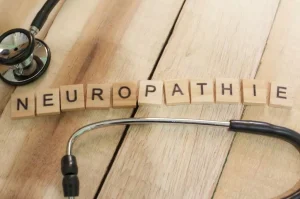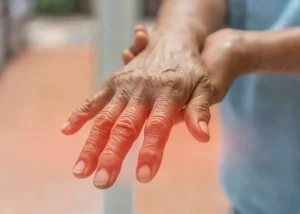Should I Go Back To Rehab?

By working closely with clients and their families, she ensures that every plan is tailored to individual needs, strengths, and aspirations. Lisa is a Licensed Marriage and Family Therapist with over 25 years of clinical experience working in the field of addiction treatment and mental health stabilization and care. Carrie’s duties are individually counseling clients weekly throughout their program, helping them rebuild trust with their families and set boundaries. Carrie coordinates with the client in developing their treatment plans for their treatment.

Start the Recovery Journey
It is essential to make sure you have adequate insurance coverage before entering treatment, as the financial burden of recovery may be more than you can handle. back to rehab The roots of relapse lie not in external circumstances but rather in the individual’s thoughts and perceptions. Your mind gives you the green light to stop going to group sessions or therapy, withdraw from friends and family, and stop taking care of yourself.
You are becoming less cautious of your triggers.
As part of a successful and healthy aftercare plan, recovery coaches understand the key role that family members play in how to live after rehab. The road to recovery for alcohol or drug addiction doesn’t end when rehab is finished. Life after rehab is when the real recovery begins and the true transformation and positive impact can take place.
The Ultimate Guide to Returning Home After Drug Rehab
By law, they can’t ask for personal details, like previous drug or alcohol use, time spent in psychiatrist hospitals or rehab, or other personal details. In the spirit of honesty and transparency, you can simply tell anyone who questions a gap on your resume that you were sick and needed time off to recover. That’s the truth, and it’s an honest and simple way to handle the issue. It could help you to find a program that offers a different approach to treatment than your previous substance abuse treatment program.
- A person might be ambivalent about recovery, seeking treatment not for themselves but for external reasons.
- Going back to treatment can provide you a recap of recovery maintenance tools and techniques to re-learn how to maintain long-term sobriety.
- At Spring Hill, we can help you find a treatment approach that meets the needs of you or your loved one.
- When you stopped using drugs, you were accustomed to the number of drugs you were using after building a tolerance.
- You’ve learned something about yourself now, the triggers, the things that may have led to the relapse.
- Having experienced a period of sobriety before, recovering addicts often leave their second stint in rehab more dedicated to their recovery and determined to sustain that for a lifetime.
- The “pink cloud” can also be thought of as looking at life through rose-colored glasses.
- Relapse can happen for a number of reasons and going back to rehab opens the door to improve the recovery plan and take new steps towards sobriety.
This includes keeping up with hygiene, household chores, going to work, attending school, caring for family, and more. If you’re considering reentering a rehabilitation facility for concerns related to relapse or entering for the first time, and you have any questions or concerns, contact us at Vertava Health today. To better understand this concept, we’ll compare drug addiction lapse and relapse to a person trying to lose weight and maintain the weight loss. Eating a single piece of pizza, for instance, would be considered a lapse. Gaining 35 pounds during the course of dieting from a continued poor diet, would be considered a relapse. Next, remove all the drugs or alcohol from the home so that they won’t be a temptation.
Should I Go Back To Rehab After A Drug Or Alcohol Relapse?
- There are several benefits to working with a recovery coach, including continued assistance with your aftercare plan.
- At JourneyPure Emerald Coast, we offer a specialized « Freedom Program » which treats active duty military members and verterans struggling with addiction and mental health disorders.
- If you feel your motivation waning as time passes, it might be time to return to rehab.
- This starts with first knowing what triggers a relapse, so you’ll be better equipped to avoid it.
- If you’ve already received drug or alcohol treatment, there’s no reason you can’t try again.
- Understand the steps, consult your doctor, research facilities, choose the right program, check insurance, and spot quality centers.
As long as someone that expensing a relapse recognizes the lapse, taking action, returning to rehab, and adjusting their recovery plan is key and can lead to long-term sobriety. It may help to have one of our trained specialists do the work instead. All we need to make a list of the best rehab centers is some information about the person who needs treatment, such as their home location and insurance plan.

What To Do After A Relapse: A Step-By-Step Guide
There are many myths surrounding relapse, some deeply ingrained and widely held. If not addressed thoroughly in rehab, these beliefs can lead to relapse after rehabilitation is complete. In order to determine if you should return to rehab, it is first important to fully understand relapse and the dangers it presents. You, nor your loved one, are under any obligation to commit to a Treatment X treatment program when calling the helpline. Addiction Resource aims to provide only the most current, accurate information in regards to addiction and addiction treatment, which means we only reference the most credible sources available. Enter your phone number below to receive a free and confidential call from a treatment provider.
Is Going Back to Rehab the Only Option After a Relapse?

Consider the benefits of a new environment vs. challenges like distance from support and added costs. It’s best to enroll in an inpatient care plan if you don’t have a stable home environment or believe Drug rehabilitation you can’t stop the loop of relapse on your own. Inpatient care may be the best option if you have waited more than a year since your previous treatment. Our caring treatment navigators are standing by 24 hours a day, 7 days a week ready to help you or your loved one.
Start the admissions process to begin building a life worth living.
This lack of commitment, among other factors, is often cited for the “revolving door syndrome,” or a cycle of treatment, relapse, and a return to treatment. A person might be ambivalent about recovery, seeking treatment not for themselves but for external reasons. You may wonder if there is a difference between a slip, or a “lapse,” and a true relapse. A lapse is a temporary, often one-time, return to prior drug-use behavior, whereas a relapse is a “full-blown” return to drug https://ecosoberhouse.com/ or alcohol use after an attempt to quit. Take the first step toward addiction treatment by contacting us today.